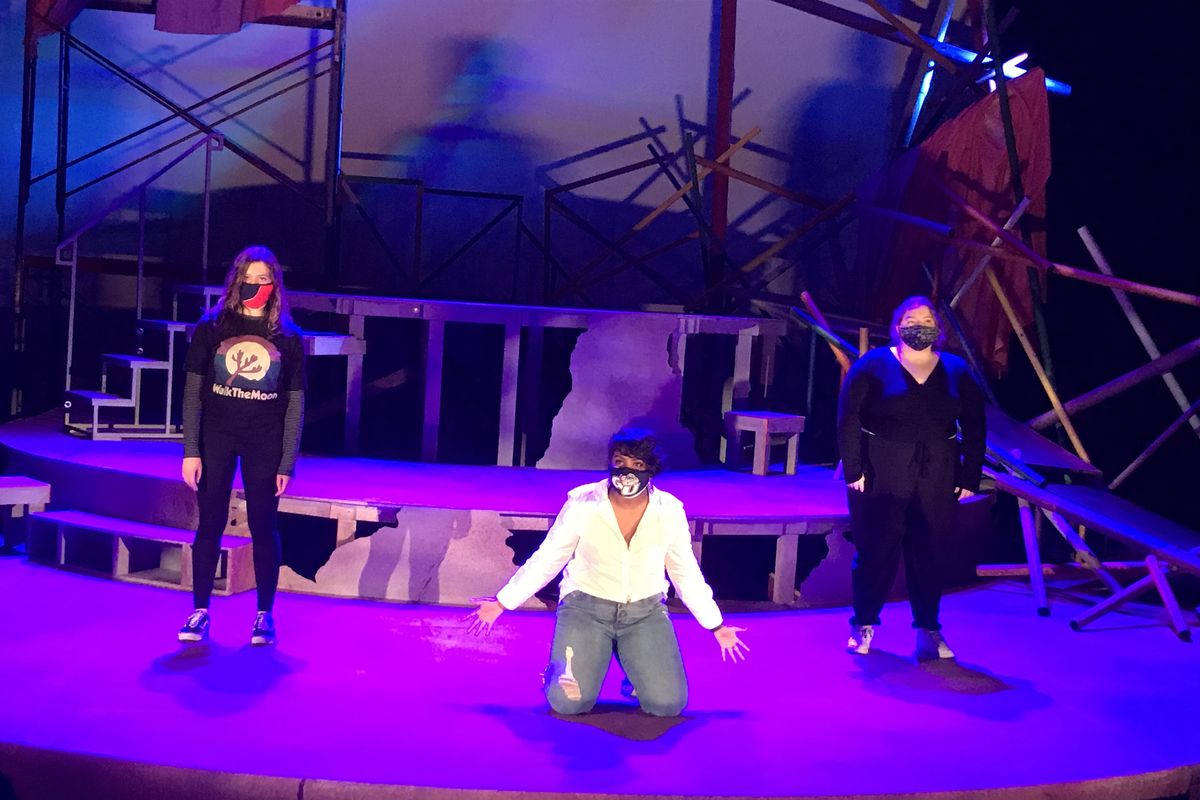Gonzaga presents Jean Anouilh’s ‘Antigone’

Gonzaga’s Theatre and Dance Department will present Jean Anouilh’s adaptation of “Antigone,” translated by Christopher Nixon, at 7 p.m. Friday and Saturday and 2 p.m. Sunday.
Following “Oedipus Rex” and “Oedipus at Colonus,” the story of “Antigone” brings an end to Sophocles’ original tragic trilogy. The story follows Antigone, daughter of Oedipus, in her attempts to honor the remains of her brother, Polynices, against the decree of her uncle, Creon, the new king.
First produced in Nazi-occupied France, Anouilh’s adaptation approaches the themes of authority, represented by Creon, and resistance to it, represented by Antigone, with more ambiguity than the original.
“It received very mixed reviews at the time,” director Josephine Keefe said, explaining how members of the French resistance and officials of the occupying Vichy government both managed to see themselves in the play.
The central debate between Antigone and Creon takes up nearly a quarter of the play’s runtime.
“These two characters really have it out with each other about what they find is either morally or ethically or legally right to do in the matter of human life,” Keefe said.
“Whether to act upon your own impulses or according to what you think is best for something greater than yourself. No matter your political leanings, I think you can feel a connectedness to that.”
After the death of Oedipus, his sons Eteocles and Polynices fight over their right to the throne of Thebes. Expelled from the city by Eteocles, Polynices returns with an army. Both brothers are killed in the ensuing battle.
When their uncle, Creon, ascends the throne, he decrees that only Eteocles should be buried with honors, while Polynices, who essentially died an enemy of Thebes, shouldn’t even be mourned.
Antigone refuses to accept this. “There’s something admirable about that bravery, and that was something that the students were all greatly attracted to as we began to explore the text,” Keefe said.
In direct defiance of King Creon, despite his warning that anyone caught mourning Polynices would be stoned to death, Antigone makes plans to bury Polynices. She is, of course, caught in the act.
When she is brought before Creon to answer for her actions, she asserts the superiority of divine law, which requires burial, over human law.
Initially, Creon orders that Antigone be buried alive. She hangs herself before Creon has time to change his mind. When she is found, Creon’s son Haemon, who loved Antigone, also kills himself.
And, at the news of their son’s death, Creon’s wife, Queen Eurydice, follows shortly after.
Keefe and the cast – nine student actors, three stage managers, a scenic designer and a lighting designer – felt the play’s relevance strongly over the past year.
“We wanted to explore a play that we could feel a direct connectedness to,” Keefe said. “While also exploring that through line of why we feel this continued connection to the actions of, of this young woman who chooses to sacrifice her life in order to do what she believes is morally and justly right in burying her brother.”
It highlighted “what we were exploring and experiencing within our community, within our own families, that divide, based on different ideologies, different beliefs and how closely we hold on to those things,” Keefe said.
After a year of Zoom meetings, students were excited but wary of beginning an in-person, albeit masked and socially distanced production.
“I think we’re seeing it across the country, how greatly impacted students have been by this pandemic and coming back into a routine, coming back into the theater, providing a safe space for us to explore this text,” Keefe said.
“It all couldn’t have been done without their optimism, their focus. The students have all worked extremely hard – I just couldn’t be more impressed and amazed by their resiliency through all of this.”
To view the livestream, visit the Gonzaga Department of Theatre & Dance YouTube channel. For more information, visit gonzaga.edu, search “Antigone” and click on “Events.”